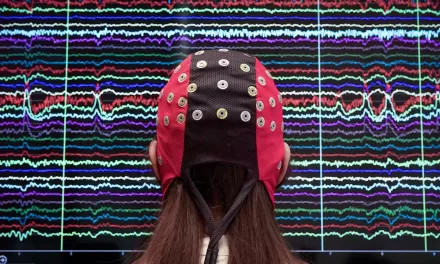In a significant breakthrough, researchers from King’s College London, the University of Exeter, and the University of California Irvine have uncovered compelling evidence indicating that a gene previously associated with intellectual disability plays a crucial role in regulating learning and memory in mice.
The gene in question, known as KDM5B, has long been recognized for its involvement in certain intellectual disability disorders and autism spectrum disorders. Although specific variants of this gene have been correlated with diminished brain function in the broader population, the effects are typically insufficient to manifest as overt disabilities or behavioral symptoms.
However, a recent study published in the Journal of Neuroscience sheds new light on the pivotal role of KDM5B in cognitive processes. By examining mice bred without a fully functional KDM5B gene, the researchers observed a marked decline in the animals’ learning and memory capabilities. Notably, the absence of proper KDM5B function hindered the brain’s ability to strengthen connections between neurons, a process integral to memory formation.
To further elucidate the gene’s impact independent of brain development, the researchers conducted additional experiments in which they selectively reduced KDM5B levels in the hippocampus, a brain region crucial for memory. This targeted reduction resulted in epileptic seizures in some mice and a deterioration of their cognitive abilities, underscoring the gene’s direct involvement in learning and memory processes.
Professor Albert Basson, a lead researcher involved in the study, emphasized the significance of these findings, stating, “Memory and the ability to learn are fundamental to our intellectual potential, yet we still have a lot to learn about the underpinning mechanisms.” He highlighted the importance of KDM5B in advancing our understanding of memory and learning mechanisms, particularly in the context of neurodevelopmental disorders.
Dr. Leticia Peres-Sisquez, who contributed to the research at King’s College London, emphasized the direct impact of KDM5B on learning and memory, distinct from its role in brain development. She noted that these findings elevate the gene’s significance and underscore its potential as a target for novel therapeutic interventions aimed at conditions such as autism and intellectual disabilities.
The study, titled “The intellectual disability risk gene Kdm5b regulates long-term memory consolidation in the hippocampus,” was made possible through funding from the Medical Research Council and the National Institutes of Aging, with additional support from Wellcome.
This groundbreaking research not only enhances our understanding of the genetic mechanisms underlying cognitive processes but also opens new avenues for exploring potential treatments for neurodevelopmental disorders that impact learning and memory functions.











